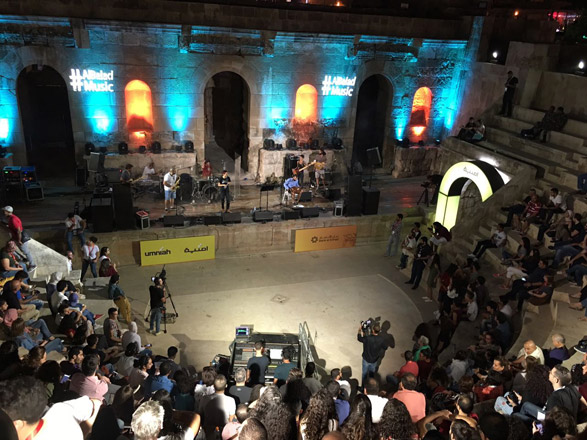AMMAN — A musical festival in Amman gave a Syrian troupe from the Israeli-occupied Syrian Golan Heights the opportunity to escape their daily isolation and perform in a joint production with a Tunisian artist in Amman on Saturday.
Hawa Dafi and Tunisian artist Mounir Troudi performed at a joint show at the Odeon Theatre in downtown Amman as part of Al Balad Music Festival.
Bisher Abu Saleh, a member of Hawa Dafi, said performing at the festival was a “great chance” for the troupe members.
“Since we are from the Golan Heights, the most important thing for us is that we interact with Arab fans from other Arab countries. This is a chance we do not have every day and this festival is very important for us. In the Golan Heights we are isolated from the surrounding Arab world,” he told The Jordan Times in an interview.
Abu Saleh said music is a way for him and his partners to express the problems they deal with or those other people encounter.
“Music is very important and, without it, we would not have been here as musicians. We have been working for one week in preparation for this show and we have managed to create friendships beyond borders through such concerts,” he added.
Raed Asfour, director of Al Balad Theatre, said four joint productions will be performed during the festival.
“Hawa Dafi and Troudi met each other in Amman two years ago and kept communicating with each other until they managed to design the show,” he told The Jordan Times.
Asfour noted that the Balad festival was initially started to provide Arab artists with a space to showcase their talent.
This year’s festival will witness around 11 performances, finishing on August 2.
